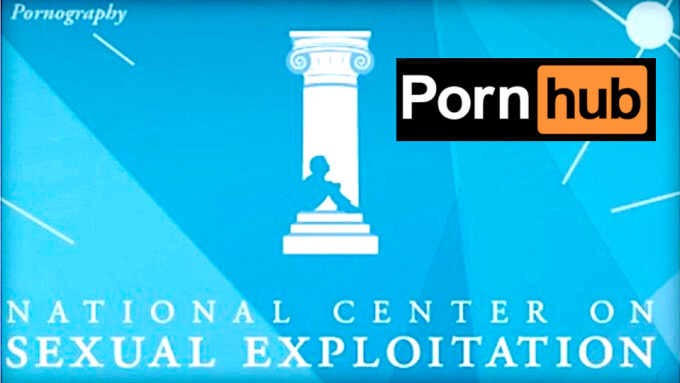BIRMINGHAM, Ala. — A group of lawyers — including members of the legal team of religiously motivated anti-porn crusading organization NCOSE — have filed a civil class action suit in Birmingham, Alabama against Pornhub’s parent company MindGeek, on behalf of two women who alleged illegal videos of themselves were uploaded to the platform by third-party users.
According to the lawsuit — which was shared with mainstream media publications over the weekend by NCOSE, accompanied by a press release celebrating their role in the ongoing campaign to shut down the adult tube site — the two plaintiffs are only identified as Jane Doe No. 1, “an individual who is now the age of majority under Alabama law and presently resides in Alabama” and Jane Doe No. 2, “an individual who is now the age of majority under Alabama law and presently resides in California.”
The lawsuit alleges that MindGeek “conspired, facilitated and financially benefited, from sex trafficking ventures between [themselves] and others. In these ventures, Jane Doe No. 1 and Jane Doe No. 2 and other minors were trafficked and commercially exploited in a sexual nature, in violation of law, including but not limited to, the Trafficking Victims Protection Reauthorization Act (TVPRA), 18 U.S.C. § 1591, et seq.”
The NCOSE-orchestrated lawsuit also claims that “sex traffickers and [MindGeek] worked together to earn a profit from commercial sex acts and child pornography involving the Plaintiffs and Class members.”
Trump Legislation Cited
The complaint makes reference to a January 2020 Executive Order by then-President Trump titled “Combating Human Trafficking and Online Child Exploitation in the United States,” and also to FOSTA/SESTA, signed into law by Trump in 2018.
The lawyers also questioned MindGeek’s moderation practices and alleged “its search functions, suggested search terms and tags make it easier for pedophiles to find the exact content they want: child sexual abuse material, including that of the Plaintiffs.”
The first 25 pages of the lawsuit’s 37 pages are a lengthy, tendentious account of MindGeek’s supposed business practices, described in terms identical to NCOSE propaganda and to the claims of Exodus Cry’s “Traffickinghub” campaign, which resulted in Nicholas Kristof’s December 4, 2020 New York Times article “The Children of Pornhub.”
Two Unclear Cases, Not Foregrounded in the Lawsuit
The context of the Jane Doe No. 1 and No. 2 accusations is not explained until the last third of the filed lawsuit.
According to the lawsuit, “in 2018, when Jane Doe No. 1 was just sixteen years old, she was drugged and raped by a man in Tuscaloosa, Alabama.” The lawyers allege the man opened a Modelhub account and uploaded a video of Jane Doe No. 1’s victimization.
The lawsuit does not go into any detail about how MindGeek was informed that the video was illegal, or the process for removing it, or whether MindGeek cooperated with law enforcement to help identify the rapist.
Instead, it claims that MindGeek’s “inadequate” moderation practices made it impossible for them to know whether any video was legal or illegal.
This supports NCOSE’s long-held argument that all depictions of sex should be outlawed because there is no possible way to determine that they were made by consenting adults.
NCOSE, formerly known as Morality in Media, aims for the complete eradication of all pornography, which they consider obscene and prurient as well as “human trafficking” and the cause of a “public health crisis.”
A Liability Argument Challenging Section 230
Details provided by the lawyers about the Jane Doe No. 2 case, a woman who is now based in California, are less clear and do not include dates.
According to the lawsuit, “Jane Doe No. 2 began being trafficked when she was just fourteen (14) years old. When she was still a minor, a sex trafficker introduced Jane Doe No. 2 to individuals who produced sexually explicit videos. The trafficker forced Jane Doe No. 2 to participate in the creation of sexually explicit videos that included adults engaging in sex acts with her. She was never paid for her participation in the production of these videos.”
“Videos of adults engaging in sex acts with Jane Doe No. 2 while she was a minor,” the complaint continues, “were uploaded and disseminated through websites owned, operated and/or controlled by [MindGeek], including, but not limited to PornHub and Redtube.”
Neither the alleged rapist of Jane Doe No. 1 nor the alleged sex trafficker or adult producers in the Jane Doe No. 2 case are named in the lawsuit.
The lawyers are asking for unspecified money damages for their clients, but the last few pages of the lawsuit are a lengthy list of demands for MindGeek to radically change their moderation practices.
The Aim: To 'End the Internet Pornography Industry as We Know It"
The lawsuit uses similar arguments to a recent legal action, also spearheaded by NCOSE, against Twitter, aiming to hold the social media platform liable for illegal videos uploaded by third-party users.
Both that lawsuit and the more recent one filed in Alabama are deliberate challenges to Section 230 protections.
Last month, NCOSE took credit for spearheading the campaign to destroy Pornhub as a tactic to abolish all sexual expression online.
“Pornhub even noted these developments were directly caused by the efforts spearheaded by the National Center on Sexual Exploitation (rightly noting us as wanting to abolish pornography), as well as the #Traffickinghub campaign, in their announcement of the changes,” they wrote on their website.
The title of the post was, “An End to the Internet Pornography Industry as We Know It.”







